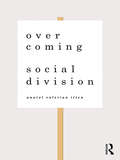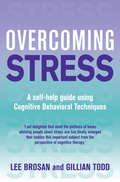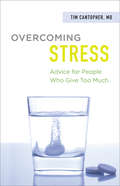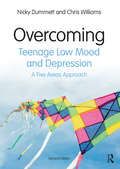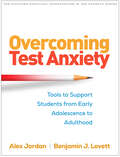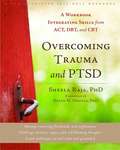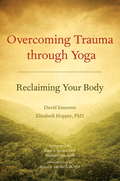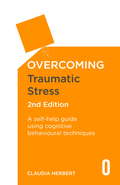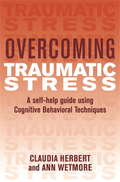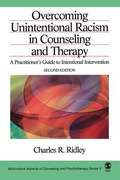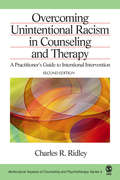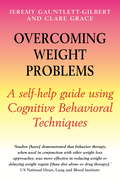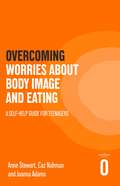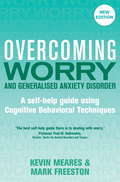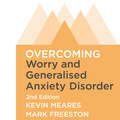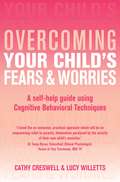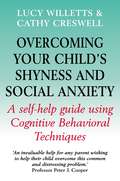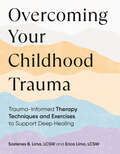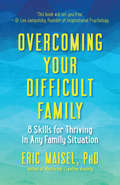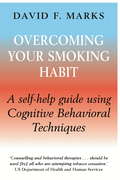- Table View
- List View
Overcoming Social Division: Conflict Resolution in Times of Polarization and Democratic Disconnection
by Anatol Valerian IttenLocked in our worldview communities and polarised through increasingly radical campaigning, we are anxious of today's great uncertainty and our politicians have little incentive to reach across party lines. The problem of social division is real. The Brexit vote led to the highest spike in hate crimes in Britain ever recorded and heated situations like the far-right rally in Charlottesville, USA are increasingly boiling over. Overcoming Social Division is not another book about dying democracies, because horror scenarios don't make you act. Instead, it is an optimistic response on what can be done, and about how we can coexist in fragmented and polarised societies. Anatol Valerian Itten explains how public conflict resolution, civic fusion and mediative decision making help us re-learn the ability to find common ground on controversial issues with our fellow citizens, whom we tend to assume believe more extreme things than they really do. This book takes the reader through empirical key factors, obstacles and blind spots and provides helpful guidelines for everyone interested in mitigating social division and resolving conflicts. The author's insights are based on his experience in conflict management, a study of dozens of public conflict resolution cases and surprising stories of over twenty interviewed mediators. Overcoming social division can be a strenuous task. But talking to our enemies is necessary if we don't want to end up in dysfunctional democracies, and it can be a more rewarding experience than we might think. This is a fascinating read for students and academics interested in conflict resolution and public participation from psychology, social sciences, law, and related disciplines. It is also a unique resource for professionals including officials, mediators, lawyers and other practitioners dealing with conflict and public participation.
Overcoming Stress
by Lee Brosan Gillian ToddOvercoming app now available via iTunes and the Google Play Store.'An excellent book filled with practical tips for understanding and managing stress.' Professor David M. Clark, Professor and Chair of Experimental Psychology, University of OxfordMost of us know what it is like to feel stressed - so much so, in fact, that we take it for granted that we are going to feel stressed and assume that there's not much to be done about it. Too much stress can disrupt our lives almost without our realizing it. However there is a tried and tested approach to coping using cognitive behavioural therapy (CBT). In this easy-to-use self-help guide the authors help you to recognize what happens when under stress and how to change how you think, feel and act so that you learn to retain a balanced outlook on life and manage it more effectively too.· Provides a complete CBT self-help course with case studies and step-by-step explanations· Shows how to permanently improve your overall quality of life by changing the ways you respond to stressOvercoming self-help guides use clinically proven techniques to treat long-standing and disabling conditions, both psychological and physical. Many guides in the Overcoming series are recommended under the Reading Well Books on Prescription scheme.Series Editor: Professor Peter Cooper
Overcoming Stress
by Tim CantopherSurveys of stress-related illness suggest that more than 250,000 people in the UK are experiencing stress at a level that is making them ill. Stress can indeed lead to extensive psychological and physical suffering but one thing is clear: we do have choices. "Stress will always be with us, and we will continue to suffer - unless we choose to change," says Dr Cantopher. "The good news is that this is possible - stress-related illness is avoidable, and if you change, you will attain happiness. " Topics covered include: - Causes of stress - Manifestations of stress - physical illness - Psychological conditions, such as anxiety, panic disorder, OCD, phobic states and depression - Acute treatments - Longer term management - How to avoid stress and its ill effects - Lifestyle issues - We have a choice This book offers not just facts, but a message of hope.
Overcoming Teenage Low Mood and Depression: A Five Areas Approach (Overcoming)
by Chris Williams Nicky DummettOvercoming Teenage Low Mood and Depression: A Five Areas Approach uses the tried and tested Five Areas™ model of Cognitive Behavioural Therapy (CBT) to equip and empower young people experiencing low mood or depression with the key life skills they need to overcome these conditions. The Five Areas™ model communicates life skills and key interventions in a clear, pragmatic and accessible style, by examining five important aspects of our lives: Life situation, relationships, resources and problems Altered thinking Altered feelings or moods Altered physical symptoms or sensations Altered behaviour or activity levels This new edition of the book from the award-winning Overcoming series, which has sold tens of thousands of copies, addresses all the common challenges faced by young people during times of low mood and depression. Developed in liaison with a team of experts working with young people, this workbook course provides a practical and effective method for helping readers make positive changes in an achievable way.Using inspiring stories and worksheets, Overcoming Teenage Low Mood and Depression will not only provide an invaluable resource for young people, but also their friends and families, counsellors and therapists, or anyone looking to offer support.
Overcoming Test Anxiety: Tools to Support Students from Early Adolescence to Adulthood (The Guilford Practical Intervention in the Schools Series)
by Benjamin J. Lovett Alex JordanThis state-of-the-art resource offers school and clinical professionals a comprehensive approach to addressing test anxiety in students from sixth grade through college and beyond (ages 11 to adulthood). The book uniquely combines acceptance-based behavior therapy interventions with practical strategies for improving study skills and enhancing test performance. By learning to disengage from unhealthy worries, students can decrease avoidance and unlock their academic potential. In a convenient large-size format, the book features sample dialogues and scripts, concrete test-taking guidance, and 27 reproducible handouts that can be downloaded and printed. This book is in The Guilford Practical Intervention in the Schools Series, edited by Sandra M. Chafouleas.
Overcoming Trauma and PTSD: A Workbook Integrating Skills from ACT, DBT, and CBT
by Susan M. Orsillo Sheela Raja<p>If you’ve experienced a traumatic event, you may feel a wide range of emotions, such as anxiety, anger, fear, and depression. The truth is that there is no right or wrong way to react to trauma; but there are ways that you can heal from your experience, and uncover your own capacity for resilience, growth, and recovery. <p>Overcoming Trauma and PTSD offers proven-effective treatments based in acceptance and commitment therapy (ACT), dialectical behavior therapy (DBT), and cognitive behavioral therapy (CBT) to help you overcome both the physical and emotional symptoms of trauma and post-traumatic stress disorder (PTSD). This book will help you find relief from painful flashbacks, insomnia, or other symptoms you might be experiencing. Also included are worksheets, checklists, and exercises to help you start feeling better and begin your journey on the road to recovery. <p>This book will help you manage your anxiety and stop avoiding certain situations, cope with painful memories and nightmares, and determine if you need to see a therapist. Perhaps most importantly, it will help you to develop a support system so that you can you heal and move forward.</p>
Overcoming Trauma through Yoga
by Peter A. Levine Stephen Cope Elizabeth Hopper David Emerson Bessel van der KolkSurvivors of trauma--whether abuse, accidents, or war--can end up profoundly wounded, betrayed by their bodies that failed to get them to safety and that are a source of pain. In order to fully heal from trauma, a connection must be made with oneself, including one's body. The trauma-sensitive yoga described in this book moves beyond traditional talk therapies that focus on the mind, by bringing the body actively into the healing process. This allows trauma survivors to cultivate a more positive relationship to their body through gentle breath, mindfulness, and movement practices. Overcoming Trauma through Yoga is a book for survivors, clinicians, and yoga instructors who are interested in mind/body healing. It introduces trauma-sensitive yoga, a modified approach to yoga developed in collaboration between yoga teachers and clinicians at the Trauma Center at Justice Resource Institute, led by yoga teacher David Emerson, along with medical doctor Bessel van der Kolk. The book begins with an in-depth description of trauma and post-traumatic stress disorder (PTSD), including a description of how trauma is held in the body and the need for body-based treatment. It offers a brief history of yoga, describes various styles of yoga commonly found in Western practice, and identifies four key themes of trauma-sensitive yoga. Chair-based exercises are described that can be incorporated into individual or group therapy, targeting specific treatment goals, and modifications are offered for mat-based yoga classes. Each exercise includes trauma-sensitive language to introduce the practice, as well as photographs to illustrate the poses. The practices have been offered to a wide range of individuals and groups, including men and women, teens, returning veterans, and others. Rounded out by valuable quotes and case stories, the book presents mindfulness, breathing, and yoga exercises that can be used by home practitioners, yoga teachers, and therapists as a way to cultivate awareness, tolerance, and an increased acceptance of the self. From the Trade Paperback edition.
Overcoming Traumatic Stress, 2nd Edition: A Self-Help Guide Using Cognitive Behavioural Techniques
by Claudia HerbertHIGHLY COMMENDED for the British Medical Awards book prize for Popular MedicinePractical help for managing the after-effects of traumaTraumatic life experiences can lead to persistent change. Those affected may become numb and shut off from those around them and grief, guilt or shame may constantly weigh them down. Memories of horrifying scenes may intrude unexpectedly during waking hours. Sleep may be disturbed by vivid, unpleasant dreams. Sudden mood swings, emotional overwhelm, impaired concentration, dissociation or feelings of constant alert make living difficult.Traumatic stress responses, including Post-Traumatic Stress Disorder (or PTSD), are caused by our mind and body's attempts to cope with experiences of extreme danger. They can affect and overwhelm anyone and are not a sign of personal weakness. Written by an expert trauma therapist, this accessible self-help manual takes those affected by specific traumatic events on a journey of recovery and healing, based on the latest psychological research and advances in trauma therapy.This fully revised and updated edition includes:Clear explanations of the symptoms of trauma and how to recognize themGuidance on seeking specialist psychological helpA step-by-step recovery programme, based on a positive growth approach Practical advice, tested exercises and useful summary check points Effective, integrative trauma healing techniques for body, mind and soul Overcoming self-help guides use clinically proven techniques to treat long-standing and disabling conditions, both psychological and physical. Many guides in the Overcoming series are recommended under the Reading Well Books on Prescription scheme.Series Editor: Professor Peter Cooper
Overcoming Traumatic Stress: A Self-Help Guide Using Cognitive Behavioral Techniques
by Claudia HerbertTerrible events are very hard to deal with. Those who go through a catastrophic life experience often feel permanently changed by the impact of what has happened. They become numb and shut off from those around them, or grief or guilt may constantly weigh them down. Memories of horrifying scenes may intrude unexpectedly during waking hours while sleep may be disturbed by vivid, unpleasant dreams. Traumatic stress responses, including Post-Traumatic Stress Disorder are psychological conditions that result from a person's coping mechanisms having been completely overwhelmed by a terrible experience. These 'flashbacks' may be so severe that sufferers may feel that they are losing their sanity and subsequently become ever more isolated in their distress. To overcome the effects of trauma it is necessary to change those reactions and begin to see events in a different light. This book demonstrates, with practical advice and tested exercises, how to find new, effective ways of coping with, and finally overcoming traumatic stress.
Overcoming Traumatic Stress: A Self-Help Guide Using Cognitive Behavioral Techniques
by Claudia HerbertTerrible events are very hard to deal with. Those who go through a catastrophic life experience often feel permanently changed by the impact of what has happened. They become numb and shut off from those around them, or grief or guilt may constantly weigh them down. Memories of horrifying scenes may intrude unexpectedly during waking hours while sleep may be disturbed by vivid, unpleasant dreams. Traumatic stress responses, including Post-Traumatic Stress Disorder are psychological conditions that result from a person's coping mechanisms having been completely overwhelmed by a terrible experience. These 'flashbacks' may be so severe that sufferers may feel that they are losing their sanity and subsequently become ever more isolated in their distress. To overcome the effects of trauma it is necessary to change those reactions and begin to see events in a different light. This book demonstrates, with practical advice and tested exercises, how to find new, effective ways of coping with, and finally overcoming traumatic stress.
Overcoming Unintentional Racism in Counseling and Therapy: A Practitioner's Guide to Intentional Intervention
by Charles R. RidleyDiscusses how individuals can learn how to confront their racist attitudes and become allies.
Overcoming Unintentional Racism in Counseling and Therapy: A Practitioner′s Guide to Intentional Intervention (Multicultural Aspects of Counseling series)
by Charles R. RidleyAny counselor or therapist, regardless of race, background, or motive, can engage in unintentional acts of racism. In so doing, they may inadvertently sabotage their own efforts and perpetuate the very problems they seek to overcome. Overcoming Unintentional Racism in Counseling and Therapy, Second Edition examines the dynamics and effects of racism in counseling with an emphasis on the insidiousness of unintentional racism. Workable solutions and practical alternatives are proposed with the goal of eliminating unintentional racism. Numerous supporting clinical examples are included in order to help counselors gain new insights into their operational practices and to modify any behaviors that may interfere with a helpful intervention. The Second Edition also provides a new section on the policies and practices of agencies and other institutions in the mental health system unintentionally resulting in service disparities. Macro-system and micro-system interventions are proposed to overcome these disparities. Key Features: The only book that addresses unintentional racism in counseling and therapy. Offers a superb balance of theory and practice. Provides problem identification and workable solutions to individual and institutional racism. Overcoming Unintentional Racism in Counseling and Therapy is ideally suited as a supplemental text for theoretical courses in counseling, counseling techniques, practicum, multicultural counseling, and professional seminars.
Overcoming Weight Problems
by Clare Grace Jeremy Gauntlett-GilbertFrom their ground-breaking work with CBT techniques in London's only NHS clinic for obesity, Drs Jeremy Gauntlett-Gilbert and Clare Grace have developed this accessible self-help guide, based on clinically tested methods that will help change thinking and overcome weight problems once and for all. How to:- - Develop real motivation to change - Deal with negative patterns of thinking and blocks and understand why you have gained weight and can't shift it - Develop a healthy and sustainable eating plan and understand why quick-fix diets are not the answer- Bring more activity into life over the long term - Handle difficult emotions and physical feelings
Overcoming Weight Problems
by Clare Grace Jeremy Gauntlett-GilbertFrom their ground-breaking work with CBT techniques in London's only NHS clinic for obesity, Drs Jeremy Gauntlett-Gilbert and Clare Grace have developed this accessible self-help guide, based on clinically tested methods that will help change thinking and overcome weight problems once and for all. How to:- - Develop real motivation to change - Deal with negative patterns of thinking and blocks and understand why you have gained weight and can't shift it - Develop a healthy and sustainable eating plan and understand why quick-fix diets are not the answer- Bring more activity into life over the long term - Handle difficult emotions and physical feelings
Overcoming Worries About Body Image and Eating: A Self-help Guide for Teenagers (Helping Your Child)
by Anne Stewart Caz Nahman Joanna AdamsMost teenagers worry about their body and appearance at some point, and some may try to alter their eating in order to change their weight or shape. If you are spending a lot of time worrying about how you look or what you are eating, it can become overwhelming and have a big impact on your life. The aim of this book is to help you to understand a bit more about these worries, what you can do about them and, most importantly, how you can develop a healthy relationship with your body and with food. If these worries take hold, there is a risk of developing an eating disorder or becoming depressed. Eating disorders can have a huge and negative impact on your physical health, your emotional wellbeing, your relationships and social life. They can take control of your mind and body, which makes it difficult to feel motivated to recover, and it can be a long and difficult journey to get back on track, so it's better to tackle these worries early on. Written by clinicians with many years of experience working in specialist eating disorder services for children and adolescents, this book follows an approach called cognitive behavioural therapy (CBT), which is a really useful way of helping us to make sense of our experiences and overcome the difficulties that we face. CBT is an evidence-based approach, which means that lots of research has been done to evaluate it and show that it can be helpful. The book includes help and support on: · Adolescent development, how we make sense of our experiences, healthy eating and how to look after yourself during the teenage years. · How you can stop body image and eating difficulties taking hold including ideas for feeling good about yourself, dealing with stress and managing social media. There is a chapter which focuses on issues for boys/young men. · How to get help from family, friends or professionals if you are struggling. There is also a chapter for parents/carers and families with suggestions on how they can help. Overcoming for Teenagers is a series to support young people through common mental health issues during adolescence, using scientific techniques that have been proven to work.Series editors: Associate Professor Polly Waite and Emeritus Professor Peter Cooper
Overcoming Worries About Body Image and Eating: A Self-help Guide for Teenagers (Helping Your Child)
by Anne Stewart Caz Nahman Joanna AdamsMost teenagers worry about their body and appearance at some point, and some may try to alter their eating in order to change their weight or shape. If you are spending a lot of time worrying about how you look or what you are eating, it can become overwhelming and have a big impact on your life. The aim of this book is to help you to understand a bit more about these worries, what you can do about them and, most importantly, how you can develop a healthy relationship with your body and with food. If these worries take hold, there is a risk of developing an eating disorder or becoming depressed. Eating disorders can have a huge and negative impact on your physical health, your emotional wellbeing, your relationships and social life. They can take control of your mind and body, which makes it difficult to feel motivated to recover, and it can be a long and difficult journey to get back on track, so it's better to tackle these worries early on. Written by clinicians with many years of experience working in specialist eating disorder services for children and adolescents, this book follows an approach called cognitive behavioural therapy (CBT), which is a really useful way of helping us to make sense of our experiences and overcome the difficulties that we face. CBT is an evidence-based approach, which means that lots of research has been done to evaluate it and show that it can be helpful. The book includes help and support on: · Adolescent development, how we make sense of our experiences, healthy eating and how to look after yourself during the teenage years. · How you can stop body image and eating difficulties taking hold including ideas for feeling good about yourself, dealing with stress and managing social media. There is a chapter which focuses on issues for boys/young men. · How to get help from family, friends or professionals if you are struggling. There is also a chapter for parents/carers and families with suggestions on how they can help. Overcoming for Teenagers is a series to support young people through common mental health issues during adolescence, using scientific techniques that have been proven to work.Series editors: Associate Professor Polly Waite and Emeritus Professor Peter Cooper
Overcoming Worry and Generalised Anxiety Disorder, 2nd Edition: A self-help guide using cognitive behavioural techniques
by Mark Freeston Kevin MearesOvercoming app now available.Up to 44 in every 1000 adults suffer from a condition known as Generalised Anxiety Disorder. This is much more than the normal worrying we all do - it can be a debilitating disorder leading to significant personal and social problems and sometimes financial loss. Using established and proven CBT techniques, expert clinicians Kevin Meares and Mark Freeston help readers to understand that it is their propensity to worry, not the multitude of problems they worry about, that is the root of the problem. The user-friendly, step-by-step approach explains why they worry, how to recognise what feeds it and develop effective methods of dealing with it. With each step the authors introduce new ideas that add to the picture of worry, and use questionnaires, exercises and tasks to help the reader understand and then challenge unhelpful habits and beliefs.
Overcoming Worry and Generalised Anxiety Disorder, 2nd Edition: A self-help guide using cognitive behavioural techniques (Overcoming Books)
by Mark Freeston Kevin MearesOvercoming app now available via iTunes and the Google Play Store.Up to 44 in every 1000 adults suffer from a condition known as Generalised Anxiety Disorder. This is much more than the normal worrying we all do - it can be a debilitating disorder leading to significant personal and social problems and sometimes financial loss. Using established and proven CBT techniques, expert clinicians Kevin Meares and Mark Freeston help readers to understand that it is their propensity to worry, not the multitude of problems they worry about, that is the root of the problem. The user-friendly, step-by-step approach explains why they worry, how to recognise what feeds it and develop effective methods of dealing with it. With each step the authors introduce new ideas that add to the picture of worry, and use questionnaires, exercises and tasks to help the reader understand and then challenge unhelpful habits and beliefs.
Overcoming Your Child's Fears and Worries
by Lucy Willetts Cathy CreswellAround 15% of children are thought to suffer from anxiety disorders, the most commonly identified emotional or behavioural problems among children. Based on techniques developed and practised by the authors, this book teaches parents how to use cognitive behavioural techniques with their children and in so doing, become their child's therapist, helping them to overcome any fears, worries and phobias. Addresses specific fears and phobias as well as general anxiety and 'worrying'. Provides step-by-step practical strategies. Includes case studies, worksheets and charts. Based on the authors' experience at their anxiety disorders clinic at the University of Reading and developed from a programme based on working almost exclusively with parents.
Overcoming Your Child's Fears and Worries: A Self-help Guide Using Cognitive Behavioral Techniques (large Print 16pt) (Overcoming Bks.)
by Lucy Willetts Cathy CreswellAround 15% of children are thought to suffer from anxiety disorders, the most commonly identified emotional or behavioural problems among children. Based on techniques developed and practised by the authors, this book teaches parents how to use cognitive behavioural techniques with their children and in so doing, become their child's therapist, helping them to overcome any fears, worries and phobias. Addresses specific fears and phobias as well as general anxiety and 'worrying'. Provides step-by-step practical strategies. Includes case studies, worksheets and charts. Based on the authors' experience at their anxiety disorders clinic at the University of Reading and developed from a programme based on working almost exclusively with parents.
Overcoming Your Child's Shyness and Social Anxiety
by Lucy Willetts Cathy CreswellMany children are naturally shy but extreme shyness and social anxiety can become a major childhood problem, leading to avoidance of school, difficulty in making friends and even developing into social anxiety in adulthood. In Overcoming Your Child's Shyness and Social Anxiety, child psychologists Lucy Willetts and Cathy Creswell explain how parents can help a shy child learn to challenge their thoughts and behaviour patterns and learn to participate confidently in every aspect of their lives. Based on clinically proven cognitive behavioural principles, the book explains what causes shyness, how to identify social anxiety in your child (sometimes masked by anger or stubbornness) and how to gradually help your child face their anxieties and develop problem-solving strategies. This book is a must for parents, teachers and anyone working with children.
Overcoming Your Child's Shyness and Social Anxiety
by Lucy Willetts Cathy CreswellMany children are naturally shy but extreme shyness and social anxiety can become a major childhood problem, leading to avoidance of school, difficulty in making friends and even developing into social anxiety in adulthood. In Overcoming Your Child's Shyness and Social Anxiety, child psychologists Lucy Willetts and Cathy Creswell explain how parents can help a shy child learn to challenge their thoughts and behaviour patterns and learn to participate confidently in every aspect of their lives. Based on clinically proven cognitive behavioural principles, the book explains what causes shyness, how to identify social anxiety in your child (sometimes masked by anger or stubbornness) and how to gradually help your child face their anxieties and develop problem-solving strategies. This book is a must for parents, teachers and anyone working with children.
Overcoming Your Childhood Trauma: Trauma-Informed Therapy Techniques and Exercises to Support Deep Healing
by Sostenes B. Lima Erica LimaEmbark on your trauma recovery journey with this safe and empowering workbook for healing childhood traumaDrawing from their years of experience working with trauma, licensed clinicians Sostenes B. Lima and Erica Lima empower adult survivors with the resources and skills they need to heal old wounds and replace unhelpful defense mechanisms with healthier coping strategies. Learn to process your past, make meaningful changes in the present, and build a future that feels freer and more hopeful—without revisiting traumatic memories in painful detail. Key features of this workbook: Understanding Trauma. Learn about the effects of childhood trauma and build up your internal resources so you can rewire the survival mind and strengthen your core self Practical, Guided Exercises. Utilize clinically proven skills, techniques, and tools to achieve meaningful progress, no matter how unique and complicated your journey Trauma-Informed Care. Explore multiple therapy modalities to best fit your needs, including attachment-based, EMDR, Internal Family Systems (IFS), and more Compassionate and Integrative. Set your own pace for your healing work and use a body-centered approach to stay grounded and safe when releasing stuck trauma
Overcoming Your Difficult Family: 8 Skills for Thriving in Any Family Situation
by Ph.D. Eric MaiselMany of the difficult people you encounter in daily life can be avoided, but what if they’re family members? What if the difficult person is a parent, a sibling, one of your children, or your mate? In Overcoming Your Difficult Family, life coach and retired family therapist Eric Maisel offers useful strategies for dealing with the people you’re connected to for life, even when they are not cooperative. Dr. Maisel tackles the problematic aspects of families, describing eight vital skills to help you cope with challenging relationships. The book also serves as a unique “field guide” to common types of dysfunctional families — authoritarian families, anxious families, addicted families, and more — and how to thrive despite those dynamics. By following Dr. Maisel’s battle-tested advice, you’ll learn to maintain inner peace in the midst of family chaos and create a better life for your whole family.
Overcoming Your Smoking Habit
by David F. MarksHave you tried and failed to give up smoking? Most smokers have but Professor David Marks' method has been scientifically evaluated and the programme's quit-smoking rates are among the highest on record, using a step-by-step week-long programme to help you stop smoking for good. Via highly acclaimed cognitive behavioural therapy techniques, proven effective in how to re-programme your mind not to want to smoke, you will not have to rely on will-power alone. - Exercises and practical strategies to regain control from your smoking automatic pilot - Ways to increase awareness of smoking triggers and deal with what leads to automatic smoking - Tips on eating and exercise to avoid weight gain - Relaxation and stress reduction and avoiding relapses
